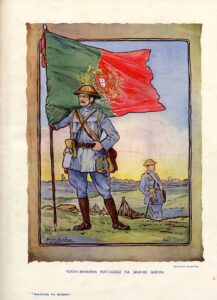
1925 – 2013
Two Algarve residents share their thoughts and memories on the life of the Iron Lady
A woman of my time
By Sheena Rawcliffe
The passing of Margaret Thatcher has had more of an impact on many people than could have been imagined.Why would that be when Baroness Thatcher retired from her political career more than 20 years ago, although taking a seat in the House of Lords until her death?
I believe that Margaret Thatcher could be compared to Marmite. You either loved her or you hated her. Not many people were ambivalent about her politics, her leadership or her skills.
She was without doubt an amazing woman. Her achievements commenced when she became a research chemist and then she became a Barrister at law.In 1959, Margaret Thatcher was elected as MP for Finchley and her career in front line politics continued until 1990.
Dubbed the Iron Lady (a name attributed to her by a Soviet journalist) and a lady that was definitely not for turning, Baroness Thatcher hoisted the UK up by its bootstraps starting in the late 1970s when she and her cabinet viewed that Britain was in a dangerous decline following various skirmishes with trades unions – and this continued when she took on the miners in the 1980s.
She was strident in her attitude to doing business as a politician, was viewed by some of her Downing Street colleagues as a harridan, being accused of unnecessary dogmatism and egotism.
Margaret Thatcher will always be remembered as the leader under whom Britain went to war for the Falkland Islands – a personal tragedy for so many, but a war which Britain won.
The British Miners and Argentina were not the only aggressors which Margaret Thatcher and her government took on.The conflict in Northern Ireland continued apace with the IRA inflicting grievous harm. The Prime Minister was lucky to escape with her life (five people were killed) when the IRA planted a bomb in a Brighton hotel in October 1984 where the Conservative Party Conference was being held.
Margaret Thatcher held office as Leader of the Opposition prior to becoming the Prime Minister in 1979. She showed women of all ages, across a wide spectrum, that it was possible to be a high profile, working woman in a predominantly male world.
Politicians can never succeed at being all things to all men and Baroness Thatcher cared little to even try. She was a talented communicator, was invariably well groomed and was my personal hero!
Today’s politicians of all parties in most parts of the world could do worse than read Margaret Thatcher – The Downing Street Years and remember the words which she spoke when she first arrived to take office at 10 Downing Street.
“Where there is discord, may we bring harmony. Where there is error, may we bring truth. Where there is doubt, may we bring faith. And where there is despair, may we bring hope …”
RIP Baroness Thatcher
A Personal Story
By Richard Lamberth
Most people in truth had almost forgotten about Margaret Thatcher until she died on April 8t 2013 after a stroke at the Ritz Hotel in London where she had been staying since Christmas. I got up close and personal with Mrs T at two ends of her political career and was touched each time by being in the presence of someone very different – someone with an aura of power and intelligence who was both inspiring and daunting at the same time.
Back in 1979 I came across Margaret Thatcher at the National Exhibition Centre (NEC) in Birmingham at a conference of the Conservative party faithful, just after she became Prime Minister. There was massive hope at a time of general despair – remember we had just lived through a winter of discontent when rubbish was piled high in the streets of London as council workers were on strike, British Leyland workers were routinely dropping nuts into the bodywork of cars to make them rattle as they went along and a minority Labour government (propped up by the Liberals) had run out of money and ideas to make anything work. Maggie offered a way out of this and we loved her for it. At her conference address, Mrs T made very clear just how tough she was going to be for anyone who doubted her and any reference to the days of consensus politics (and Ted Heath in particular) were greeted with hoots of booing, derision and scorn.
Then came the eighties and Maggie, true to her word, dealt with the issues of the day in a tough, determined and increasingly autocratic way. With the exception of Churchill, never before has a politician been so decisive and uniquely divisive. When the streets of Brixton, South London erupted into riots against her policies, Mrs Thatcher stood firm at the Conservative Conference and said ‘You turn if you want to – the lady’s not for turning’ to confound her critics. The Argentinians, the miners and many, many journalists crossed the Iron Lady over the next decade at their peril. She turned the UK, for better or worse, into a true market economy at the cutting edge of Europe – and of course, ironically Europe was her ultimate downfall and disagreements within the Conservative party forced her out of office.
My last meeting with Mrs T a few years ago was through a friend who was standing for election as a prospective Tory MP. Once again, I found her to be an ultimately polite, intelligent and genuinely enquiring person. Someone who listened to what you said and did not always answer immediately but considered her response carefully to anything you said. Woe betide you if you came to the table of Mrs T without some well thought out ideas and discussion points!
Last December, I found myself staying in Belgravia, just around the corner from Chester Square where Margaret Thatcher lived. On a cold, frosty but sunny winter morning, I walked past her house and nodded to the heavily armed policeman, still on duty at her door. This was some 22 years after she left office and I guess was an indication of the massive divide of opinion that her premiership still evokes and suddenly, just a few days ago, everyone else remembered.
























